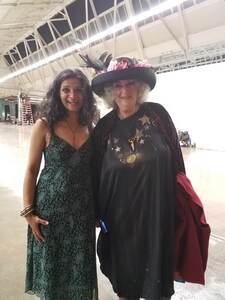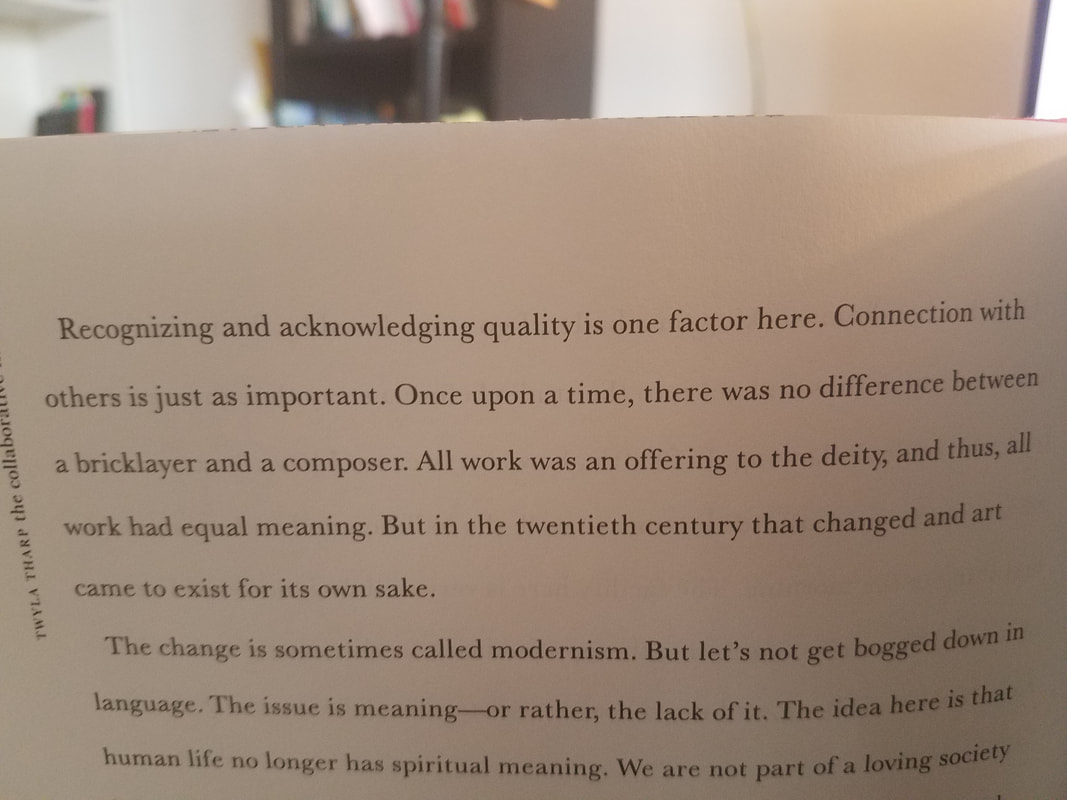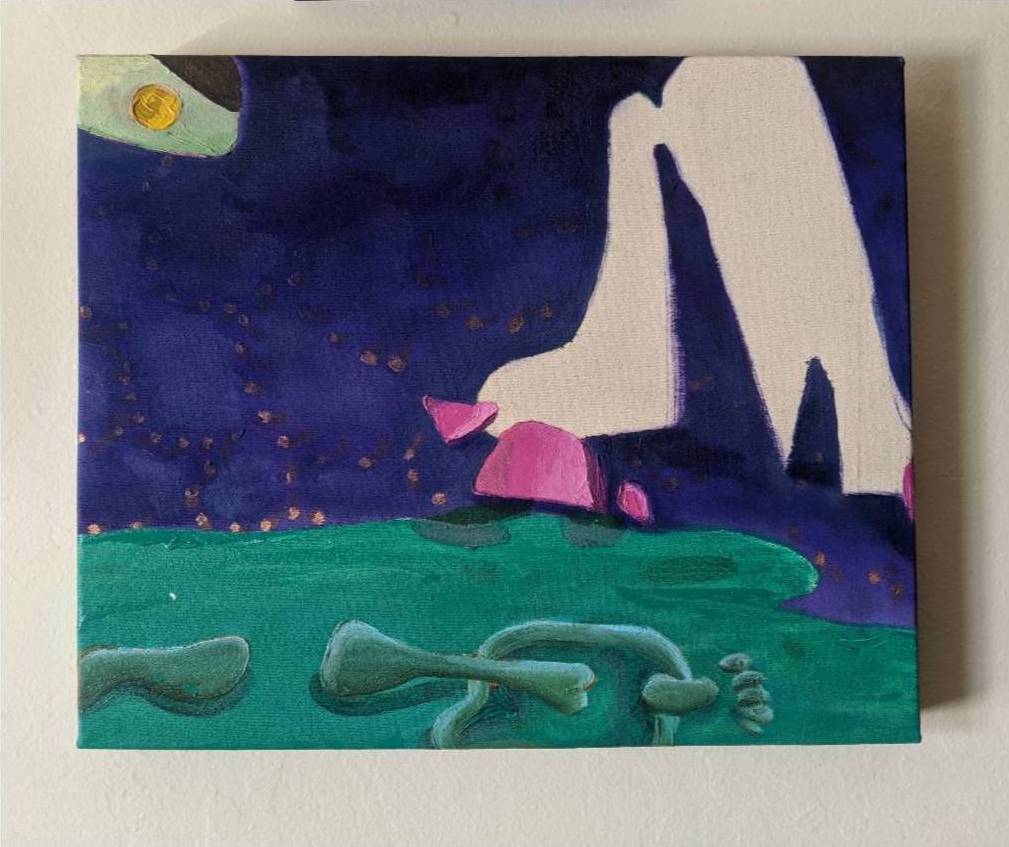Once upon a time, there was no difference between a bricklayer and a composer. All work was an offering to the deity, and thus, all work had equal meaning. But in the twentieth century that changed and art came to exist for its own sake.
0 Comments
I am delighted that ORDINARY ANNALS—my new poetry chapbook forthcoming from above/ground press—will have Palija Shrestha's luminous art on its cover. Palija Shrestha is an artist from Kathmandu, Nepal, currently residing in San Francisco. Apprehending a spiritual and political affinity with her work, I reached out to Palija requesting a painting. When she sent this painting to me, she wrote:
"I painted this during the midst of the shelter in place, it is tied to memories with my grandmother who was battling with 4th stage cancer for 4 years and I found that time to be deeply sorrowful and yet enlightening at the same time. It is after I had finished this painting that her soul departed and I found myself thinking about this painting while I was reading your chapbook." Grateful that this beautiful painting will accompany ORDINARY ANNALS. Also a thanks to Rob McLennan for making this possible! "I grew up in a tradition where there are simply more dimensions to reality: legends and myths and ancestors and spirits and death," he says. "You can't use Jane Austen to speak about African reality."
"Which brings the question: what is reality? Everyone's reality is different. For different perceptions of reality we need a different language." Hence the "dream-logic" narrative, which he believes works better. "We like to think that the world is rational and precise and exactly how we see it, but something erupts in our reality which makes us sense that there's more to the fabric of life," he says. "I'm fascinated by the mysterious element that runs through our lives. Everyone is looking out of the world through their emotion and history. Nobody has an absolute reality." -- Ben Okri
The philosophy of "Regeneration Poem" is most clearly embedded in its second stanza:
You say, world is a forest on fire. We become wolves that shape river’s course. * While I could say more about the parallel play in these two lines, for now, in brief: "The world is a forest on fire" is a quote from Advaita philosopher, Sankara.** The metaphysics of Advaita Vedanta rejects the embodied experience as illusory--the world, which is maya, is conceptualized as something to be left behind on the quest for liberation. To this, the poem's response is transfiguration—which is an embodied experience, and must be experienced through the body, and the body's being in the world. "We become wolves that shape river’s course." I was thinking here of Women Who Run With the Wolves, the influential tract from Dr. Clarissa Pinkola Estés that argues so well that we are nature, and in recovering this we find the vitality that restores us/the world. I was also thinking of a real story about wolves and rivers described by Peter Wohlleben in his book, The Secret Wisdom of Nature. Wolves reintroduced in Yellowstone National Park did change the course of rivers. The ecosystem responds to every part of the complex interconnections within nature.
We are part of the wild/world, which is more of an interconnected ecosystem than we humans sometimes acknowledge. Via, and being present to our interconnectedness, we can contribute to the communal functioning of the world in equal measure to our ability to cause destruction, create fires.
Do we leave the world behind in our quest for liberation? Or, do we become One embracing all-that-is—self, body, earth, cosmos? Do we embrace a metaphysics of the non-dual that excludes nothing—a consciousness that both begins from and returns to nothing, even as it fully enjoys and is present to the form/ation stirring into life, unfurling from stage to stage? For non-dual Tantra, this is the primordial dance. The rhythm is familiar to our animal body. Cognitive awareness can only try to get at the wisdom. The recursive journey of liberation happens right here in the world as we engage with it.
Listen to Regeneration Poem:
**Incidentally, I first came across this quote in a poem by Meena Alexander, "Fragile Places."
 Starhawk & I after the Reclaiming Spiral Dance, 2018 Starhawk & I after the Reclaiming Spiral Dance, 2018
A few days ago, Starhawk celebrated her 70th birthday and Earth Activist Training (EAT) its 20th anniversary, with a virtual "Magical Mystery Tour" of Earth Activists sharing their regenerative projects and sites, and a ritual for Summer Solstice. I was delighted and honored to be a part of the ritual, writing for the occasion a poem (which also served as an invocation to the Goddess of Regeneration).
The event was a fundraiser for EAT's diversity fund, and $10,000 were raised towards scholarships for people of color, indigenous peoples, folks on the frontline and activists. (You can donate to EAT here.) Writing a poem for the occasion presented me with the opportunity to step into a new role--that of a poet writing for community. Rilke writes that the poem enters language "from a dimension that is always turned away from us." A poet writing for community is working with a paradox: to write without regard for, while still drawing into its waters its hearers. An audio recording of the poem is below. |
Get updates of New blog postsconnect with me ON SOCIALSArchives
April 2024
|


 RSS Feed
RSS Feed